Some animal behaviors are fascinating, but you’ll also discover some strange things. For instance, you’ll feel disgusted with the idea of coprophagia, an act of eating poop.
It’s common in the animal kingdom, and pigs are one of the animals that practice it.
Do pigs eat their own poop? Pigs do eat their own poop. It’s not normal for humans to do it, so it’s a horrifying idea. Moreover, some things may concern you, like the effects of this action on pig’s health and the safety of eating pork. It’s fine for them to do it, but it shouldn’t be too frequent.
What if pigs make it a habit to eat their poop? Are there consequences? There’s more to learn about this behavior, so spare some time reading the rest of the article.
What Does Pig Poop Look Like?
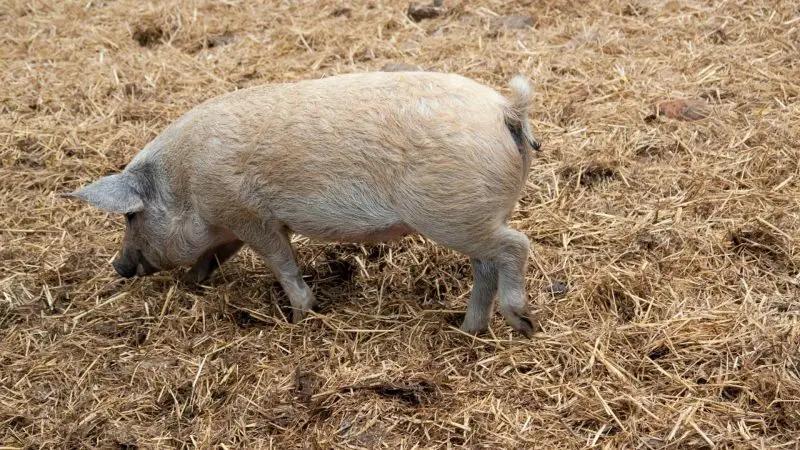
The normal pig poop is indicated by a brown hue. When it comes to the size, the length is from three to nine inches, while the thickness is an inch or two. It’s released through irregular droppings that pile up.
But it has a different appearance when there are some issues with the pig’s health.
For instance, black poop materializes due to bleeding in the stomach and small intestine. But there are other causes of the dark manure.
The stool becomes black if the pig took medication that contains bismuth or ate blueberries or black licorice. When it’s more dark green, it’s the effect of iron supplements.
Consistency is another basis of healthy pig poop. There’s a blockage on the passage if the feces look like a thin pencil.
This happens when a pig eats things like small rocks, which can obstruct the stomach.
The pig poop has liquid consistency when diarrhea occurs. It should be blamed on overfeeding. In some cases, parasites, bacteria, or viruses can cause it.
Do Pigs Like Eating Poop?
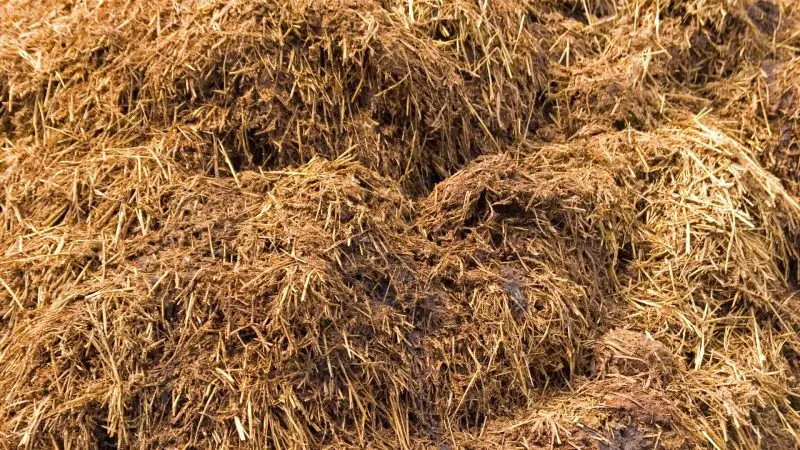
Pigs like to eat poop out of hunger or when they’re not properly fed. They also eat human feces. It’s unacceptable to humans but there’s a good reason behind it.
A pig normally poops three times a day. It may be more if they eat a lot. Pigs can digest the nutrients that weren’t digested by eating their poop. Nutrient absorption follows for the necessary nourishment.
Pigs won’t consider eating their poop if they have a full stomach. The caretakers of these animals should feed them properly and keep their pens clean. This disgusting act is not harmful to the pig’s health at all if it’s not done frequently.
When they do it, it means that their nutritional requirements are not fulfilled. So, there’s a need to correct their diet and food supply.
Should Pigs be Eating Their Poop or Not?
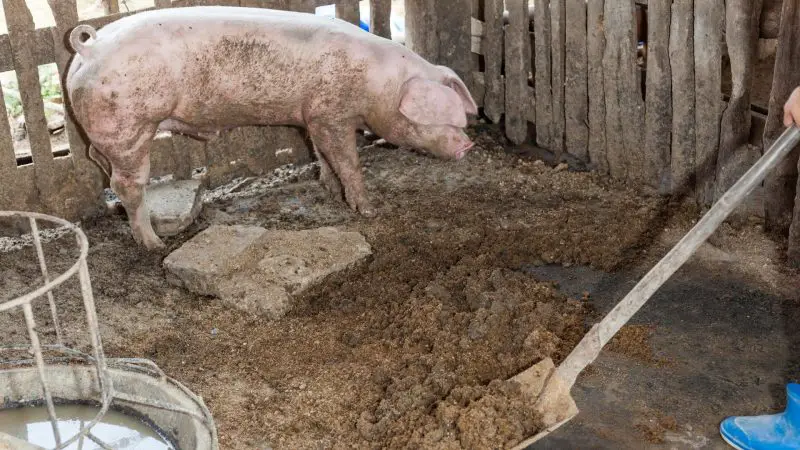
When pigs eat their poop, it gives them another chance to process the undigested nutrients. However, this is not good when it’s done often.
If a pig does it all the time, it’s at risk of getting a gastrointestinal infection.
A study discovered that sanitation is connected to the prevalence and risk of gastrointestinal parasites that cause helminth or worm infection among pigs.
Thus, regular disposal of litter and manure on pig pens is advised since they usually excrete in an area that is close to where they live and feed.
Pigs prefer to lie down in dry, warm areas while they excrete in wet, cool places nearby. They usually poop on the floor that is covered by water.
Therefore, they make it a habit to drop their poop near the drinking area.
In this setting, the water that they drink will be mixed with their poop. This situation will lead to the spread of the infection if there is more than one pig in a pen. So, the upkeep of their pens is essential.
In the findings of the study, young pigs are mostly affected by the gastrointestinal parasite. But those that are older than five months have developed immunity. Still, they have some worms inside of their bodies. They have fewer than the young ones.
The findings suggest that young pigs shouldn’t eat their poop because they’re not immune. Although those that are past five months old obtain immunity, it’s still not advisable to let them eat their poop all the time.
They can still carry worms inside their stomach and infect others with their poop.
What to Do with Pig Poops?
As the pig poop piles up, the odor becomes stronger, and sanitation becomes a concern. It’s not going to be a problem if you know what to do.
1. Composting
Composting is the option for those who raise pigs indoors or in a concrete building. The manure is removed from these areas then taken to the composting site. Pig poop contains similar germs that are found in human waste.
So, these germs are hazardous, and it’s necessary to compost before using the pig poop as a fertilizer. This process also cuts down the odor coming from the poop.
For this purpose, you need to cover the composting site. Farmers do it since they grow edible crops. However, you can directly use it as a fertilizer on the pasture that other animals feed on.
2. On-Pasture Pig Poop Management
This method is ideal for those who manage their pigs on pasture. The proper way of utilizing manure and monitoring the soil’s health is crucial to enhance the condition of the area. Depending on the size of the pasture, you may leave the poop on it as it is.
In a dense place packed with numerous pigs, you should spread the poop rather than just wait for it to decompose. You may do it through a harrow, spreader, or four-wheeler with a chain link. These things can make it easier to spread pig poop.
Yearly checking on the soil is recommended, so you’ll know other nutrients that it needs. You must know that pig poop can’t supply all the nutritional requirements of the soil.
3. Stockpiling
It’s an option for people who raise their pigs indoors or in a concrete place. A large commercial pig farm is the perfect place to practice stockpiling poop. This establishment has enormous holding tanks or lagoons for this procedure.
Stockpiling involves bacteria turning pig poop into solid and liquid forms. Then, they are sold as fertilizers or fuel sources. A small-scale operation of stockpiling is also possible.
The result can be sold as a soil additive to local nurseries or greenery. Farmers will also be interested in it as they utilize it as fertilizer.
If you stockpile, you have to choose the right location for storage. It must be far enough from the dwellings to prevent inconvenience. You also have to consider the weather to achieve your goals.
See to it that when the wind blows, the poop won’t go in the direction of your house or someone else’s.
It’s also good to cover your stockpile due to odor concerns. You may also make a roof for it so the odor will not drift.
4. Removal process
Removing pig poop is linked with stockpiling. To save some effort, it’s wise to stockpile the poop before removing it in a large amount. You can do it yourself and sell the byproduct.
If you want to trouble yourself, you can hire a company to do the process for you.
Can Pigs Spread Disease to Humans?
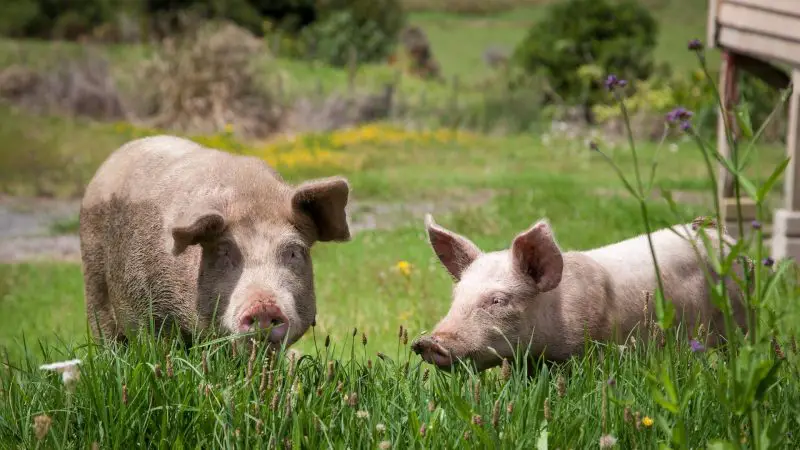
Pigs can spread diseases to humans. Humans can be infected with ascariasis and swine influenza virus. Ascaris suum is a parasite found in the pig’s intestine, and it can infect humans.
It happens when an individual doesn’t wash hands after getting in contact with infected pigs.
Infection also occurs when eating uncooked, unwashed, or unpeeled fruits and vegetables that have been grown from gardens fertilized by pig poop.
The symptoms are weight loss, unthriftiness, gradual weight gain, and difficulty of breathing. Some may have whole worms in their poop.
Swine influenza virus only causes sporadic human infections. The symptoms are mild and similar to the seasonal flu.
But hospitalization and death can take place. On the brighter side, the spread of this disease is limited.
Can Pig Meat Make You Sick?
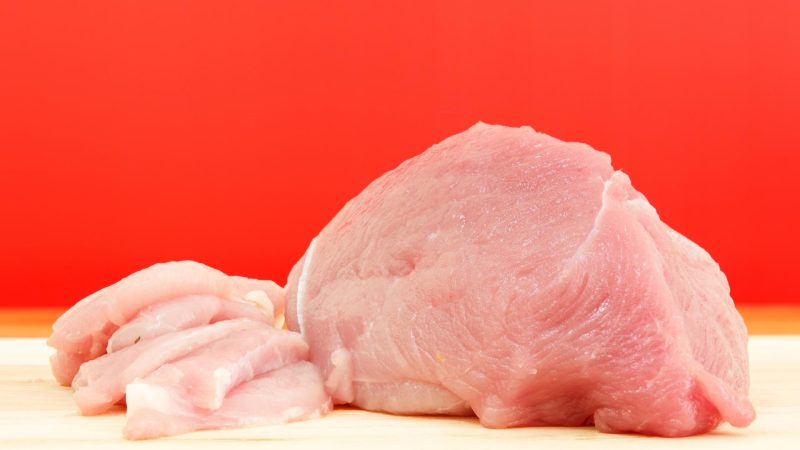
Ascariasis and swine flu don’t infect people by eating pig meat or pork. As long as it’s properly handled and cooked, the meat can’t make you sick.
It’s disgusting when you think of eating meat from pigs that eat poop. However, the only thing that makes it unsafe to eat is the amount of intake. In addition, it contains saturated fats and cholesterol.
Summary
This article has taught you a lot about pigs and waste disposal. Do pigs eat their own poop? They do since this practice is normal among pigs and other animals. But it shouldn’t be too often as it can cause diseases to the entire herd. On special occasions, infections can also affect humans.
